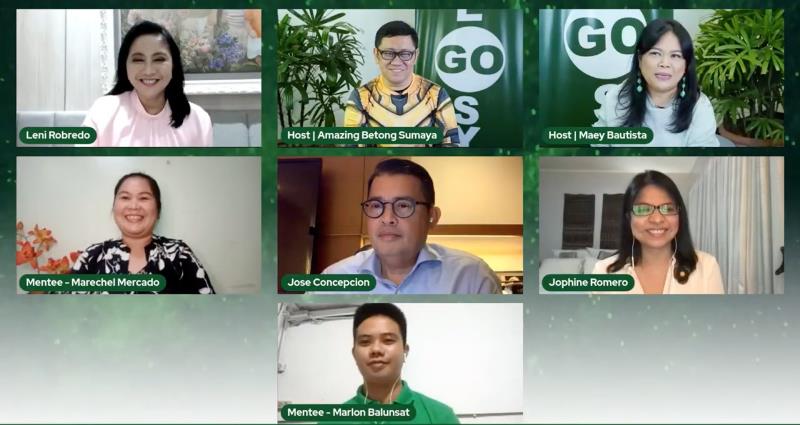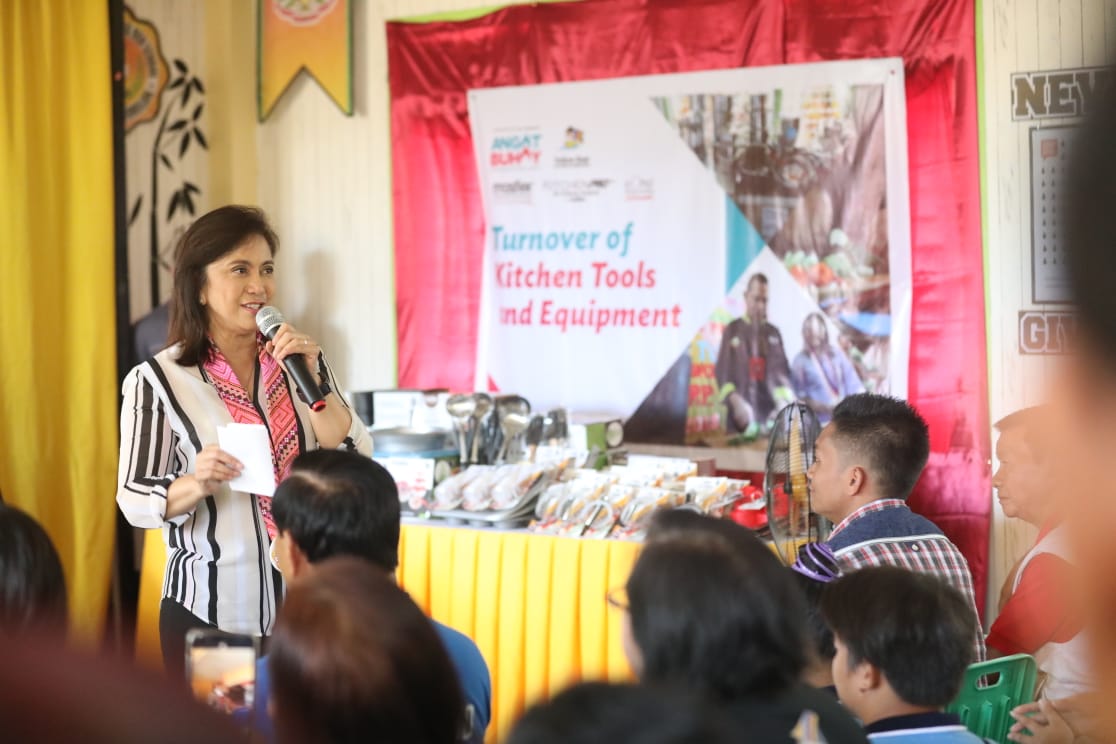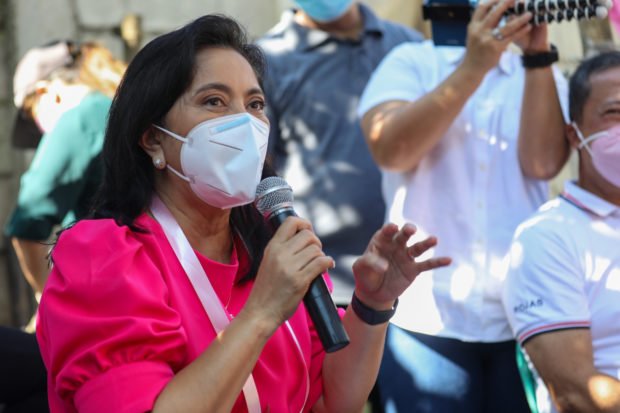Access to credit, integration into public procurement programs, and helping MSMEs with infrastructure to aid them adapt to the new normal. These were among the plans shared by Vice President Leni Robredo during her turn at the “Kandidatalks” show of Go Negosyo’s Go Negoshow should she become the Philippines’s next president.
The forum with the Vice President attracted more than 366,000 viewers when it went live over Facebook and shared over nine national media outlets. A project of Go Negosyo as a special series on its Go Negoshow, “Kandidatalks” focuses on what the 2022 national elections hold for the country’s micro, small, and medium enterprises (MSMEs).
Presidential Adviser for Entrepreneurship Joey Concepcion, who joined hosts Josephine Romero, Betong Sumaya and Maey Bautista, said that Robredo being the only woman in the 2022 Presidential race is significant for entrepreneurs especially since women make up 90% of the small entrepreneurs in the country. “She has the unique chance of helping and inspiring all the nanays who have turned to entrepreneurship to improve their lives,” he said.
Concepcion recalls that Robredo has been a long time supporter of MSMEs, stating that she understands the framework and that her projects share the same objectives of helping them. Robredo has been a part of several Go Negosyo projects, including the Filipina Entrepreneurship Summit, 55 Inspiring Stories of Women Entrepreneurs, and the ASEAN 2017 Prosperity for All Summit.

“Our office has benefited from Go Negosyo’s Mentor Me programs,” said Robredo, citing specifically the farmer entrepreneurs of Camarines Sur. “We have been a partner of Go Negosyo’s programs from the time I became vice president,” she said, citing the Angat Buhay summit in 2016.
During the program, the VP Leni laid down her cards should she win the presidency. These included allocating Php100 billion in a stimulus package for MSMEs as part of the country’s COVID recovery plan so that small businesses do not have to let go of their employees. The recovery plan includes skills training, livelihood grants, and online jobs-matching, which she said her office has already been doing.
The Vice President said that MSMEs need help with fitting their businesses with the infrastructure to make them ready for the new normal. These include creating green spaces and improving ventilation, and making them ready to digitize their businesses, all of which will need special loans. “The mindset in planning should be geared toward creating more green spaces, more open spaces, and well-ventilated infrastructures,” she said.
As additional support, she also plans to aid MSMEs by expanding access to credit by providing direct lending through state-owned banks, and providing tax incentives to social enterprises. She also plans to incorporate MSMEs into public sector procurement. If the price and quality are competitive, she said, the government should opt to purchase from MSMEs.
“When I was a member of the 16th Congress, I filed the Sustainable Public Procurement Bill, which aimed to amend the procurement law,” she said. Robredo explained that the government, being the number one consumer in the country, should look beyond prices, and take into consideration the social, economic and environmental impact of its procurements. MSMEs, she said, cannot keep up with the big bidders, and there ought to be a criteria other than price when it comes to government procurements.
Moving forward, she said small businesses will need opportunities for innovation, and this is where incubator programs can help and encourage startups.
During her turn at “Kandidatalks”, the Vice President shared several of her office’s projects that helped small entrepreneurs cope during the pandemic.

The Angat Buhay program, which was started four years ago by the Office of the Vice President, allowed it to respond faster during the pandemic. “It started with the PPEs,” said Robredo. Her office tapped sewing communities to produce PPEs that they then deployed to hospitals. “We were able to hit two birds with one stone,” she said.
She shared that projects amplified one after the other, enabling them to launch projects such as helping small school-based eateries establish online presence and public transport workers make a living by delivering goods from community markets.
Small entrepreneurs also raised questions for Robredo. Merechel Mercado, who runs an island-hopping business, asked the Vice President why it is important to help small businesses. The VP said that of 950,000 plus enterprises, 99.5 percent are MSMEs, and that 88.77 percent of these are microenterprises. “Small enterprises play a big role in our economy,” she said, adding that they also generate 5.3 million jobs.
“They are the backbone of the economy, but they are the ones who have a hard time,” she said, explaining that MSMEs often lack capital and the resources to help them adapt during crises.
“What we realized during the pandemic is that there are many good people out there; they just need to know how to help.” This, she said, is where organized programs can help.
With additional report: businessmirror.com.ph
Image sources: inquirer.net, businessmirror.com.ph, rappler.com







